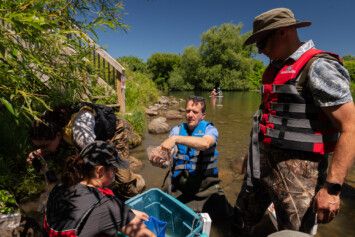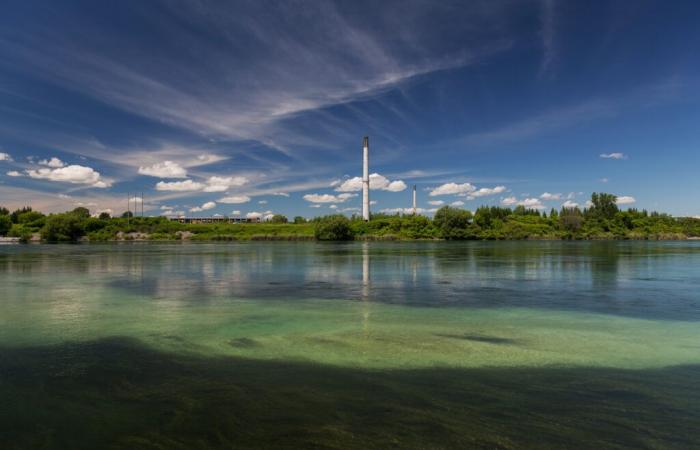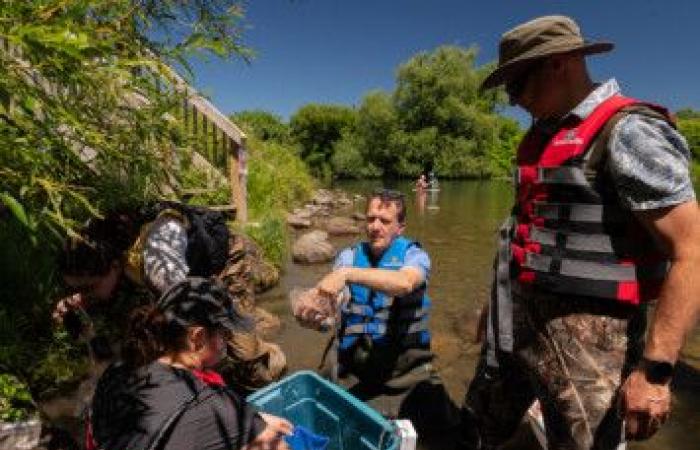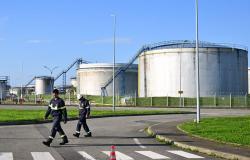FRANCOPRESSE – The Canadian economy relies largely on water. But the resource remains fragile and voices are being raised to rethink the management of blue gold in the country, while demand continues to grow.
“We live in a country where we think that we have all the wealth of water around us, except that we do not manage it well,” says Soula Chronopoulos, the president of AquaAction, an organization dedicated to freshwater health in North America.
Industries, agriculture, housing, transport, energy: “In our economy, everything happens through water,” she continues. But supply does not always follow demand. “The population is growing in Canada, we are building and we don’t have enough water to supply these buildings.”
Also read: Water in Canada: an abundant resource, but under pressure
Increased industrial consumption
According to a Statistics Canada report published in July 2024, industries continue to be the main consumers of water in the country.
In 2021, just over two-thirds (69.5%) of all water used by industries in Canada was used in the production, transportation and distribution of electricity. Next come agricultural crops (6.2%) and livestock (4.8%).
Water consumption in the agricultural sector increased by 30.9% between 2019 and 2021, a period that coincides with low levels of precipitation, particularly in the Prairies.
Raising awareness, “a difficult battle”
In Saskatchewan, Al Birchard, organic farmer, places an important emphasis on the preservation and restoration of wetlands.
In Saskatchewan, many regions, notably First Nations reserves, do not benefit from an adequate supply of drinking water, denounces Al Birchard.
Photo: Courtesy
“They contribute greatly to the mitigation of floods and droughts […] and present many ecological characteristics of which many people, among farmers and the general public, are not aware,” reports the regional representative of the National Farmers’ Union (UNF).
“We are taking a close look at the multi-billion dollar irrigation project,” he adds, referring to the titanic work around Lake Diefenbaker announced in 2020 by Saskatchewan Premier Scott Moe, but which is far away. to achieve unanimity.
A project which, according to Al Birchard, will cost much more than the $4 billion planned and will only benefit only 1% of the province's farmers.
Also read: A gigantic irrigation project that raises questions (Living Water)
The farmer regrets that provincial or municipal administrations do not pay enough attention to water conservation. “They are more interested in water as a resource, which means you have to use it in one way or another.”
“If the UNF has a policy regarding irrigation and preservation of wetlands, this is not the most widespread point of view. […] It is therefore a difficult battle to raise awareness among the general public and levels of government.”
In his view, Saskatchewan does not have a comprehensive and appropriate water management policy. “The policies they consider and implement do not always involve environmental assessments,” he regrets.
Also read: Water help for farmers (Agricom)
“Very divided” management
For the head of Canadian policies at the Alliance of Great Lakes and St. Lawrence Cities, Maxime Hayet, industries and municipalities must work “as partners and not just as adversaries” in order to reduce their water consumption.

Maxime Hayet believes that industries and municipalities must work together to reduce their water consumption.
Photo: Courtesy
“This resource will become increasingly rare and therefore expensive, so we have to prepare for that,” he warns.
Including indigenous communities at the negotiating table also remains essential, insists the director of the International Association for Research on the Great Lakes, Jérôme Marty, who “have often been pushed aside”. “We cannot have good management of aquatic resources today without the involvement of First Nations.”
“The problem with water management in Canada is that it is very divided, at the municipal, provincial and federal levels,” he adds. A division which according to him can lead to complications.
He takes the example of the Great Lakes. “In this case, we have laws that may be different on one side or the other of the borders, and between provinces and states. There is not one rule that applies everywhere to manage the system and that is what we would probably need.”
“We do not have laws that regulate the release of nutrients into the environment, instead, we have guides to good practices,” he illustrates.
Also read: Great Lakes Series: Lake Erie, out of breath
Regional and cultural differences
“There are regional differences. A one-size-fits-all approach to addressing freshwater challenges in Canada would not work,” contradicts the acting director of indigenous partnerships, external relations and communications at Environment and Climate Change Canada, Remi Gosselin.

For Jérôme Marty, it is imperative to include First Nations at the table in negotiations related to water.
Photo : Stephany Hildebrand
“There are also cultural and societal differences,” he adds, referring in particular to indigenous peoples, “who have a deep connection with water, which is also at the heart of their cultural, spiritual and social life.”
Precisely, according to him, all these divergences and these particular needs highlight the need for a national effort to manage the resource in a coordinated manner. “Freshwater activities fall under the responsibility of more than 20 federal departments and agencies.”
He cites the creation for this purpose of the Canada Water Agency, which finances several initiatives aimed, among other things, at restoring aquatic environments and improving the quality of fresh water in sensitive environments.
“We are trying to start establishing relationships with the industrial sector,” adds Remi Gosselin. The conversations are truly childhood-like. We haven't necessarily reached the solutions stage, but we certainly consider this to be a group that is one of our key stakeholders. So, we are working to build this relationship.”
A federal water agency
In 2020, the federal government undertook the creation of a Canada Water Agency to oversee the governance of fresh water in the country. It should make it possible to manage the resource by working in partnership with Indigenous peoples, provinces, territories and stakeholders.
Ottawa announced an investment of $85.1 million over five years, starting in 2023-2024, and $21 million per year thereafter to support the creation of this agency.
One of the latter's objectives is to “put together all the databases that exist on water quality and water quantity throughout the country,” explains the director of the International Association for Research on the Great Lakes, Jérôme Marty.
“And that’s something that will be useful for making better decisions,” he wants to believe.
Also read: The Canadian Water Agency opens its doors (Freedom)
Governments that aren't doing enough?
If Soula Chronopoulos welcomes the desire of the federal government and some of the provinces and territories to tackle the problem of water management and to invest to remedy it, she nevertheless deplores a lack of commitment on the part political decision-makers.

For Soula Chronopoulos, the Government of Canada must innovate, raise awareness and act quickly to protect and properly manage fresh water in the country, particularly through technological initiatives and public policies.
Photo: Courtesy
“Water is not as sexy as carbon,” she says, alluding to certain political speeches.
However, “this is a threat to agriculture and a health problem,” recalls the president of AquaAction.
“It’s not just a climate and environmental problem. It goes further. We only live three days without water […] I hope that the federal government at some point will end up seeing it like that.”
“Canada could and should be a leader in this sector […] How many Jasper [ville albertaine ravagée par un incendie à l’été 2024, NDLR] what more do we need to understand that we need to do something? How many Jaspers do we need before we act?
Also read: Jasper fire: the embers are still hot
“There are wars starting around water”
According to her, it is essential to become aware of all these issues linked to water, both in the public, media and political spheres.
“We need to put this in the media. The media don't talk about that; people who do not have access to drinking or good quality water. We don’t talk about the pollutants or microplastics in our water that we currently drink.”
“There are already wars starting around water or the lack of water.” If Canada is not yet concerned, it remains a “target,” she warns.
Type: News
News: Content based on facts, either observed and verified first-hand by the journalist or reported and verified by knowledgeable sources.
Montréal










